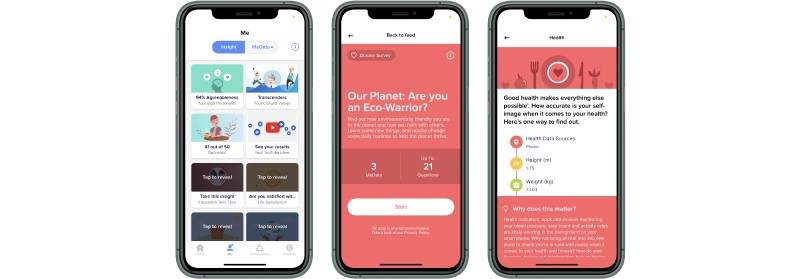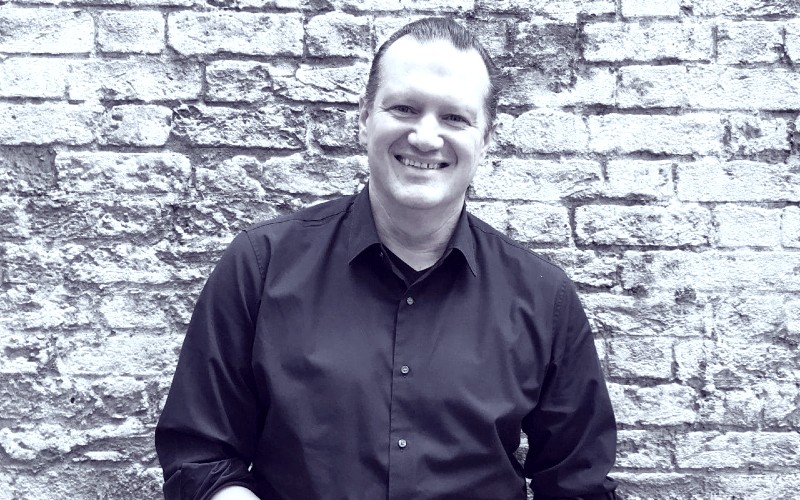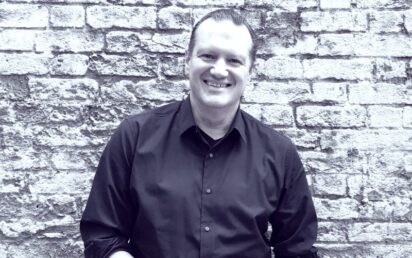When the Beastie Boys rapped about fighting for your right to party, back in 1986, the internet was a fledgling computer network being used by American universities to exchange data.
Thirty-six years on, regulators on both sides of the Atlantic are fighting for your right to own the first-party data held on you by companies. It is a mission also held dear by StJohn Deakins, CEO of No.1-ranked MarTech 50 company CitizenMe.
Back in 2012, two years before he would found the London startup, Deakins produced a Gonzo-style crowdsourced documentary – Twittamentary – which highlighted the power of the internet to connect people across the world.
“It can be a real power for good, but it gets beaten up a lot. Fear makes a better news story than a positive [experience],” he tells BusinessCloud. “However, the question must then be asked: what happens in terms of our rights? You’ve got this new global society, but there’s no organisation that can really safeguard that for us all.
“You could see [back in 2012] that there were many, many potential harms and bad scenarios you could enter in a purely market-driven data world with no governance. Most people want to behave in a good way, but they are basically incentivised to harvest as much data as possible.”
https://businesscloud.co.uk/martech-50-uks-most-innovative-marketing-technology-creators-for-2022/
Having exited mobile digital media platform 3ple-Media prior to Twittamentary, Deakins was able to ‘map out’ his vision for an alternative framework where people gain back control over their own data.
“The more I researched into it, the more I could see there was going to be this massive issue around personal data, because it fuels everything,” he explains. “If the internet is designed for humans and to serve humans, then you have to work out who those humans are by hoovering up lots of data.
“You end up with that pooling into three or four different companies, because that’s the way markets work if they’re not regulated – that’s where we got to with these massive data monopolies.
“We’ve been on this transition for 20 years. My Apple Watch is taking all my vitals all the time and pinging them back to Apple, which is really helpful for me – but I don’t really have any control over that data.
“It has to go distributed. You have to give everyone individual agency and the ability to participate – you have to give them a copy of their own data, which sits with them rather than on a server somewhere.”
Move to the edge
Ironically, given that Apple invented the device, the smartphone could provide the solution to moving data ownership back into the hands of citizens. “There’s enough storage on smartphones now [to do this],” says Deakins. “We’ve got more compute sitting in our pockets than that used to go to the Moon 50 years ago… and we’re using it to play Candy Crush!
“It’s entirely possible to just shift everything out to the edge: you become the best source of data about you because you’ve got your Sainsbury’s data, your NatWest banking data and your Strava data all in one place. There’s nowhere else in the world that all that data should fit together.”
CitizenMe has begun by entering the market research and consumer insight sector. It has already worked with global brands such as Barclays, Sainsbury’s, Unilever, GSK and the BBC to deliver high-quality audience insights into lifestyle choices such as health and finances which, crucially, claim to be ethical and transparent.
This ‘zero-party’ approach has so far helped approaching 500,000 ‘Citizens’ take control of their data and gain value from it with more than 10 million completed transactions around 400+ types of data derived via API connections.
“Every time you share data, you get some sort of value from it,” explains Deakins. “You can share data to see what everyone else in the community thinks; you can donate data for medical research; or share data for cash or a voucher.
“If you’re a Type 1 diabetic, you can find out how 10,000 other Type 1 diabetics manage their glucose before they go out for a morning walk. That’s valuable – and it’s all verified, from real people, and anonymous.
“It’s like an upside-down social network where you start with the people first…. you need to solve human experience first and delight people and then work backwards from there. The growth of the community so far has been word of mouth… for me, the platform has to be something that people will tell each other about, and possess that kind of innate virality, before you go out and do a huge marketing drive.”
Higher-quality, anonymous data
Initially funded from serial entrepreneur Deakins’s last exit, CitizenMe won backing from angel investors before completing its first institutional round last year – $2m from the North East Venture Fund, managed by Mercia, with participation from 1818 Venture Capital.
It is now making the transition into a software-as-a-service platform focused on growing in the UK and US markets.
“A major retailer in the USA, the largest telco in the USA and the largest credit card company there have all approached us asking to licence our entire technology stack for their customers,” says Deakins.
“Most large loyalty programmes will be buying in third-party data from Equifax, Experian and the big data brokers to try and understand their customers more so they can serve them better. At the moment that information is often out of date, incomplete and incorrect.

“Because of all the regulations coming through in the US and Europe, the industry is going to switch from third-party data to zero-party data: so you’ll have a 360 view of your customer, buying in store and online, but you won’t know anything else about the rest of their life, and you can’t buy that data anymore because it’s toxic.
“So the obvious thing to do is just ask people. A company running a big loyalty programme can take our tech and put it into their existing loyalty programme to enable people to collect their own data privately on their phone and choose what to share with that retailer.”
The entrepreneur has also made moves to facilitate that bigger-picture fight for rights.
“You need to create an economy [around this zero-party data phase] and also some sort of governance for it as well. The first thing I did was to map that out: when we get up to the right kind of critical mass, we have a governance body – which we help set up and fund from a percentage of our profits – which helps to make sure that companies like us are properly regulated and sign up to particular terms which benefit everyone.”


